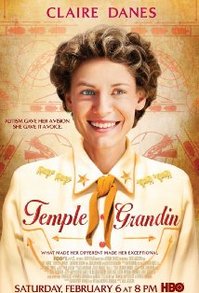I titled a post last week, “Does Every Human Life Have Value?”
And I wrote my answer. In a word, yes. But my husband pointed out that I could
have taken it a step further and asked, “Is every human life equally valuable?” Again, my answer is
yes. But perhaps that’s a harder case to make.
How do I compare
the life of an infant who dies in the NICU to an 80-year old professor who
wrote seventeen books? How do I compare the life of a 50-year old who left his
family in ruins and a 5-year old who happily goes to school in the morning and
plays with her friends in the afternoon?
I could take an economic approach and value those lives
based upon how much money they pump into (or drain from) the global financial
system. Or I could take a more emotional approach and try to measure the
happiness each life offers to his community.
But I don’t believe that the value of human life is
determined through these measures.
Over the weekend, we watched Temple Grandin, an excellent HBO movie that portrays the remarkable life of
the title character. Temple Grandin has autism. She is a world-renowned
speaker, a professor, and she has transformed conditions in cattle
slaughterhouses in order to make them more humane and more profitable. One of
the lines repeated throughout the film–by Temple’s mother and by Temple
herself–is, “Different, not less.”
Temple is different. She doesn’t like human touch. She
didn’t talk until she was four. She doesn’t understand communication through
facial expressions. She is terrified of sliding doors. And she can see the
world through the eyes of cattle and use her considerable mental gifts to serve
those animals.
I’ve written elsewhere (“Who Do I Want Our Daughter to Become?”) about people like Temple Grandin, the
“exceptional” members of the disability community, the ones who make the
headlines and overcome expectations. She gives us a story that portrays the
truth of the line: “Different, not less.” And yet her story can be extended to
countless lives–to the ones who don’t write books or give speeches or change
technology or transform industries. Different from one another, not less.
Our value as people is not something we need to
prove–whether by academic achievement, financial prosperity, or a sunny
disposition. Rather, as creatures formed in the image of God, our value is
bestowed upon us from the moment of conception. We are valuable because we are
human. We are valuable because we are God’s beloved. And that means all of us. The inmate on death row. The celebrity in Hollywood. The baby in the hospital. The woman battling cancer. The child with Down syndrome or autism or cerebral palsy or typical genes. All of us are valuable. Equally.


